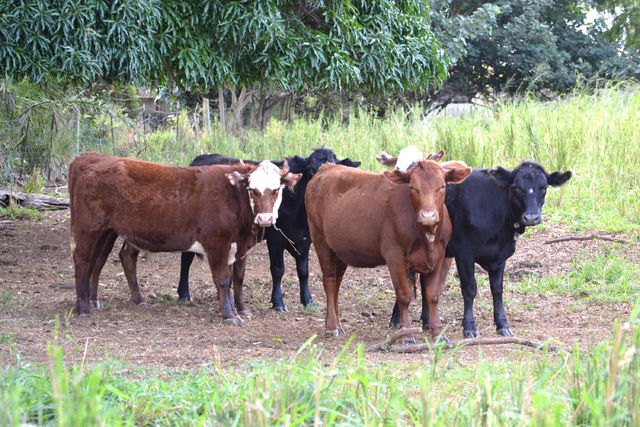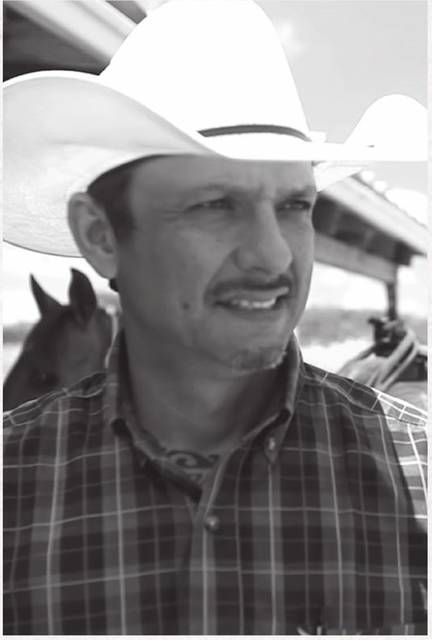LIHUE — A local cattle company that operates with 1,500 mama cows on the island recently received a six-figure investment from a Hawaii-based venture capital fund. EEx Fund One LLC, an independent investment corporation managing $3M in assets designed to
LIHUE — A local cattle company that operates with 1,500 mama cows on the island recently received a six-figure investment from a Hawaii-based venture capital fund.
EEx Fund One LLC, an independent investment corporation managing $3M in assets designed to support Energy Excelerator programs, invested $300,000 to Kunoa Cattle Company in order to promote more local beef production and reduce the state’s reliance on imported meats.
“With this additional support we can do more to create an authentic local food system, with healthier land, animals and food,” said Kunoa co-founder Bobby Farias, who was recently named Cleantech & Agriculture Entrepreneur of the Year by the Hawaii Venture Capital Association.
Kunoa was originally selected to Energy Excelerator’s 2015 Go-to-Market cohort, an accelerator program that provided seed funding and introductions to customers, investors, and other strategic partners.
“Kunoa’s solution is an important part of the goal to increase food self-sufficiency in Hawaii, where we import more than 90 percent of our beef supply,” said Jill Sims, co-founder of Energy Excelerator. “Supporting companies that drive solutions to the challenges we face as a state is key to growing an innovation economy.”
In mid-November, the cattle company — for an undisclosed price — purchased Oahu’s only slaughterhouse in the hopes of expanding the market for locally-produced beef in the state.
The state-owned facility on Oahu has the potential to process about 10,000 animals per year, said Jack Beuttell, a partner with Kunoa Cattle Company.
Kunoa upgraded the facility for enhanced processing of its own livestock, as well as livestock from other producers throughout the state who are selling under their own local meat brands.
“Our goal is that by investing in this facility and upgrading it and improving the standards for animal welfare and food safety, we can attract more business from our fellow ranchers across the state and perform services for them so they can increase their production as well,” Beuttell said in a previous interview.
According to a USDA report, about 700,000 pounds of red meat was produced in the state in August. The number equaled last year’s figures. Through the first six months, however, this year’s figure of 5.8 million pounds of red meat production is down from production of 6 million pounds through the first half of last year.
Red meat production includes cattle, hogs, and sheep and lamb, according to the report.
The bulk of the red meat is cattle, which amounts to 7.1 million pounds before slaughter in 2016 and 7.6 million pounds last year, according to USDA reports.
Data from the 2012 Census of Agriculture had Kauai producing about 10 percent of the state’s cattle sales, which amounts to about $4 million that year out of the $38 million of cattle sales in the state.
Kunoa is among the initial investments made in Energy Excelerator portfolio companies by EEx Fund One. The venture-capital fund invests exclusively in companies that have participated in Energy Excelerator programs. The portfolio is made up of 53 best-in-class energy, water, transportation, agriculture and cybersecurity startups.
“Kunoa is not only impacting our food and agricultural systems — it is also creating local jobs and reducing the fossil fuels used for meat transportation.” Sims said.
Scott Enright, Hawaii Department of Agriculture chair, said the cattle industry is a growing sector in the state.
“The livestock industry has been here for a long time — from when Capt. Cook gave Kamehameha animals back in the late 1700s. We have important pasture lands all over the state,” Enright said. “What we’re changing is the dynamic about how we’ll get marketed and how many of these animals will be processed.”




